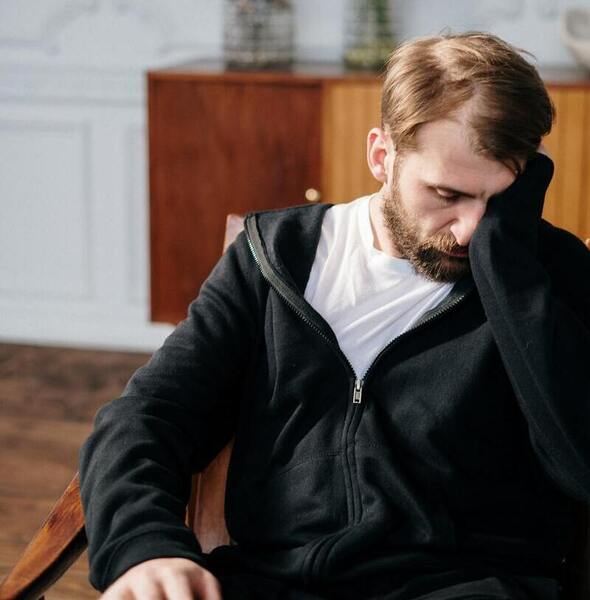Have you been thinking about cognitive behavioural therapy (CBT)? We look at what CBT is and how cognitive behavioural therapy can help you.
What is Cognitive Behavioral Therapy (CBT)?
CBT is a form of therapy that involves talking, mostly aimed at helping in the management of your life problems, mostly by altering your thoughts and behavior.
The most common use of it is in treating depression and anxiety, but it still finds use in other physical or mental problems.
How does cognitive behavioral therapy (CBT) work?
This form of treatment is based on conversations based on skills and theoretical knowledge and has a rich evidence background supporting it.
It gives the patients an environment that is safe, supportive, and one where no judgment is passed. This allows them to talk freely with mental health professionals who are solely trained to help them go through whatever issue they are in.
Usually, this form of treatment requires a few sessions, mostly ranging from 5 to 20. However, expecting immediate results might work against you since CBT takes time to be effective and might involve you doing some work you are uncomfortable with.
Its working is shown below. The therapist takes you through the following steps:
Gain an understanding of the issue
When starting the sessions, you talk with your therapist about the challenges you are going through, some of the symptoms you are aware of, and any other concerns you might like to raise.
It is also good to inform your therapist if you might have a former diagnosis of a mental problem. The first steps are vital since they help shape the goals that will see you through.
Ask a series of questions
They might ask you a couple of questions depending on your situation. These might cover such topics as past incidences, behaviors that you find troubling, phobias or fears, and the feelings and thoughts going through your mind. He/she will help you find the answers to these questions to shine a light on your response to the challenges you come across.
Help you recognize problematic thoughts and behaviors
Your therapist takes you through an interaction involving questions and answers while guiding you into being keen on your responses to hard situations.
He/she will help you pick out unhealthy emotions or even behaviors and beliefs that might play a hand in your problems. You might also be requested to have a journal that records the situations you find yourself in and the responses you come up with.
Work with you to adjust your thoughts and behaviors
These sessions will aid in figuring out how to divert habits, emotions, and thoughts that have negative impacts. You get to correct your perspectives and take on behaviors and thought patterns with a positive effect. You are free to use the attained skills in situations in the future.
What is the theory behind CBT?
Cognitive behavioral therapy is based on the concept of us affecting how we behave and feel by how we conceive situations.
A good example might be experiencing negative emotions due to interpreting a certain situation negatively. The negative feelings may cause you to act in certain ways.
Cognitive behavioral therapy makes use of two modes of therapy to help you cope with the behaviors and thoughts:
Cognitive therapy, examines how you think
Behavior therapy, examines how you do things
What does CBT treat?
Cognitive behavioral therapy has been applied to treat a wide variety of problems like anger, panic and anxiety attacks, depression, bipolar disorder, addiction to drugs and alcohol, hoarding, eating disorders, phobias, obsessive-compulsive disorders (OCD), psychosis, perinatal mental health problems, schizophrenia, stress, schizoaffective disorder, sleep problems, self-harm and post-traumatic stress disorders (PTSD).
At times you might be provided with adaptations of CBT for specific mental health problems, most of them bearing names that differ slightly. You might also be presented with variations to deal with physical health problems, mostly when you have mental health problems that come with physical health problems.
What happens during CBT sessions?
When you have been required to have CBT, you will most likely attend therapy sessions once a week or after two weeks. You will have to go for between 5 and 20 sessions, each ranging between half an hour and one hour.
During these sessions, your therapist will help you break down your issues into smaller parts like actions, physical feelings, and thoughts. You will both go through these fields to determine whether they are unhelpful or unrealistic and to gauge how they affect one another as well as you.
The therapist then guides you in the formulation of ways of changing behaviors and thoughts that are unhelpful. When you have determined what is changeable, you will then be required to effect the changes in your normal life and then talk about the success in the following session.
Therapy’s end goal is to show you ways of applying the acquired skills in your life. In effect, you can get hold of your problems and bar them from affecting your life negatively even after you are done with the treatment.
Types of cognitive behavioral therapy
It covers various approaches and techniques focusing on emotions, behaviors, and thoughts. They might be structured psychotherapies to self-help practices. Some target specific problems, such as:
Cognitive therapy
This is concerned with identifying and altering distorted or inaccurate thought patterns, as well as behaviors and emotional responses.
Dialectical behavior therapy (DBT)
It handles thoughts and behaviors that are disturbing or destructive while bringing in strategies of treatment like mindfulness and emotional regulation.
Multi-modal therapy
Its underlying concept is that psychological issues must be dealt with by looking at seven modalities that are different, although interconnected. They are; affect, behavior, imagery, sensation, interpersonal factors, biological/drug considerations, and cognition.
Rational emotive behavior therapy (REBT)
It deals with factoring out irrational beliefs, challenging them, and then knowing how to recognize these thought patterns and change them.
Even though every type of CBT has a different approach, they are all geared towards looking at the thought patterns that are the force behind psychological stress.
How long will I need cognitive behavioral therapy (CBT)?
CBT mostly runs for about 12 to 20 weeks but every individual is unique. Also, mental health conditions are complex, meaning the length might vary.
However, one should not be blown off by the amount of time it takes for better thought and feelings management since a life of better quality awaits. What is important is actively looking for help; the smallest of progress is progress enough.
This article looks at how cognitive behavioural therapy can help you. Learning cognitive behavioural therapy skills is one of the important skills for self development. Find out about the other self development skills you can benefit from improving.






